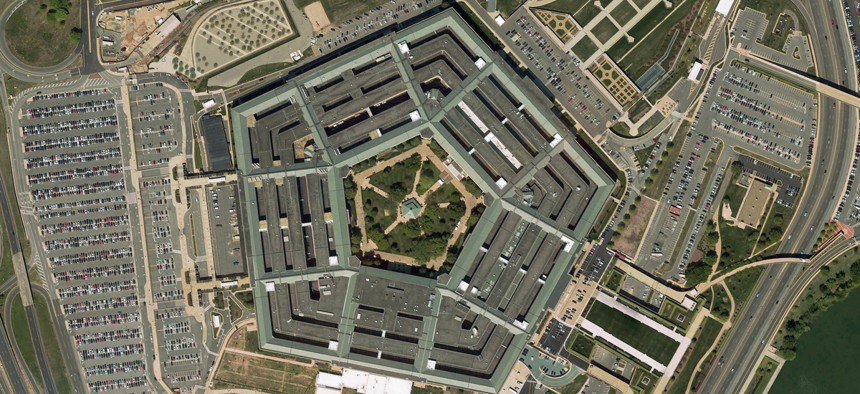DOD’s Interest in 'Owning' 5G Networks Riles Conservative Groups

gokturk_06
A recent survey noted a lack of support from stakeholders was an impediment for federal agencies implementing 5G capabilities, but that’s mostly on the civilian side of things.
A set of individuals and organizations advocating free-market principles is drawing attention to what they say are conflicting moves from within the administration on how best to establish fifth-generation networks in the U.S., noting nationalization of the technology isn’t it.
“A government-run 5G backbone, wholesale network, or whatever name it goes by, is nationalization of private business,” reads an Oct. 7 letter to Sen. John Thune, R-S.D., signed by leaders of Americans for Tax Reform, the Competitive Enterprise Institute and 41 others. “Spectrum sharing is something that must be considered as the nation moves forward with private networks, but it is not a reason for a government takeover.”
There’s limited space on the airwaves needed to support 5G, and the government and private sector have collaborated in the past on spectrum sharing initiatives, but language in a Sep. 18 request for information from the Defense Department raised the eyebrows of lawmakers across the political spectrum, reigniting outrage over an idea—originally floated at the start of 2018—that the government should build and control 5G networks.
“How could DoD own and operate 5G networks for its domestic operations? What are the potential issues with DoD owning and operating independent networks for its 5G operations?,” the RFI asks. “How could revenue be shared with DoD under a [dynamic spectrum sharing] leasing agreement or any type of leasing agreement?”
Competition with China has focused more attention on a need for the U.S. to lead in the adoption of 5G technology. A recent survey sponsored by the company CommScope looked at how federal agencies in particular are poised to take advantage of the new standard in wireless telecommunications equipment.
“Civilian agencies noted lack of buy-in from senior stakeholders as a barrier at a rate of 2x more often than defense agencies,” the survey noted.
The groups in the letter to Thune were writing to thank the senator for alerting President Trump to what seemed like a reversal of steps that have drawn praise from the private sector.
“We write today to express our concern about a Request for Information released by the Defense Department that contradicts the successful free-market strategy you have embraced for 5G,” wrote Thune and a number of other Republican senators in a Sep. 30 letter. “Rather than rely on private industry and market forces to foster multiple, facilities-based 5G networks, the RFI seeks information on a government-managed process for 5G networks.”
After initial and ongoing costs, the federal agencies surveyed for CommScope said concerns about ensuring security was a leading barrier to their implementation of 5G technology.
The senators’ letter also noted that if bad actors only need to penetrate one network, there is a greater likelihood of disruption.
Democrats in the House made a much more aggressive criticism of the RFI, suggesting corrupt motives from the top of the administration.
“The Department of Defense’s RFI on the creation of a government-owned and operated 5G network will do nothing but slow the deployment of this critical technology,” wrote House Energy and Commerce Chairman Frank Pallone, D-N.J., and Rep. Mike Doyle, D-Pa., chairman of the communications technology subcommittee. “The plan appears specifically crafted to enrich President Trump’s cronies and undermines the careful and complicated work done by the [Federal Communications Commission] and the [National Telecommunications and Information Administration] to allocate this spectrum for commercial use.”



